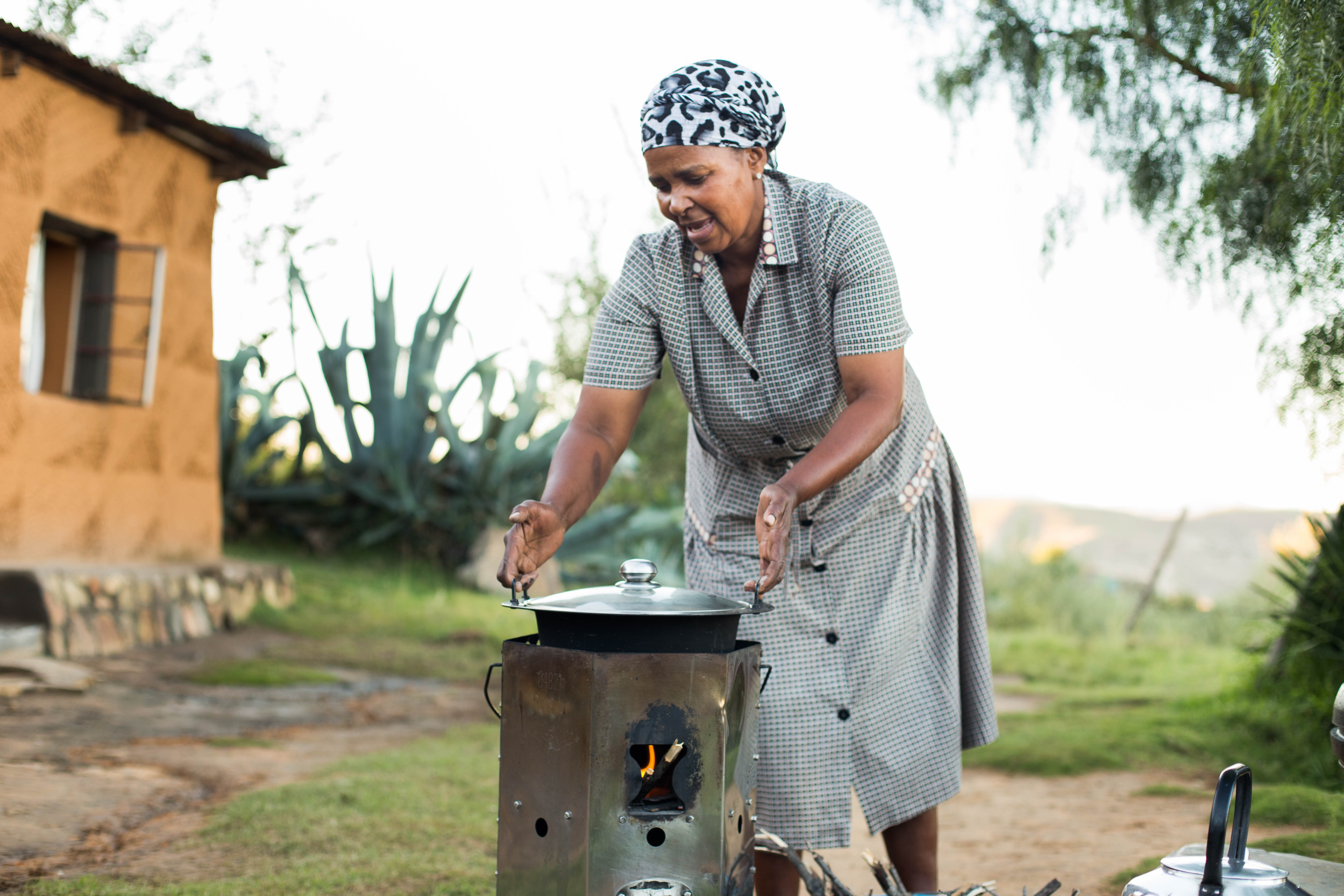
Energy access
Access to clean cooking
1 in 3
people in the world - 2.4 billion - don't have access to clean, safe fuels and technologies for cooking.
40%
of them live in sub-Saharan Africa.
We work to make access to clean, safe fuels and technologies for cooking and heating a development priority.
The lack of access to clean cooking is a huge, often-forgotten crisis that disproportionately impacts women and children, who bear the brunt of domestic tasks, in the world’s poorest communities. It comes with significant health, social and environmental costs. Indoor pollution generated by open fires or stoves used for cooking or heating leads to the premature death of 3.8 million people every year – nearly half of all air pollution related deaths. It’s also estimated that women and children spend up to 18 hours a week collecting wood and other fuels for domestic energy use – time that could be spent on education, income-generating activities, or rest and leisure. It also drives deforestation and environmental degradation.
Our focus
Clean cooking is at the forefront of UNDP’s climate and sustainable energy agenda. Progress on clean cooking ultimately requires a multi-faceted approach involving heightened advocacy for policy and regulatory action capable of enabling increased engagement of private sector and deployment of innovative technologies and business models, focusing on market-based approaches, for clean cooking solutions.
Featured projects

Energy-efficient charcoal production and consumption in Sierra Leone
The production and trade in charcoal has been a massive rural growth industry over the past decade in Sierra Leone. Many people consider charcoal a relatively modern fuel when burn on the modern stoves. Notwithstanding its popularity, the charcoal and cookstoves sub-sector remains informal, unregulated, and fragmented, plagued by inefficient production system relying on non-renewable sources supported by incoherent and often conflicting policy statements. UNDP aims to bring economic, social and environmental benefits through the production of certified charcoal from sustainably sourced feedstock and through the promotion of improved cookstoves to reduce fuel wood demand, improve health and reduce greenhouse gas emissions.

Promotion of Energy Efficient Cooking, Heating and Housing Technologies (PEECH) in Pakistan
Almost the 50% of the population of Pakistan do not have access to clean fuels and technologies for cooking. This is even higher in rural areas, such as the Northern region of the country, where most of the people still use wood as fuel for cooking with consequences for the health, the environment and woman empowerment. Funded by the Global Environment Fund (GEF), UNDP's project Promotion of Energy Efficient Cooking, Heating and Housing Technologies (PEECH) enabled a reduction in the uses of biomass for energy purpose in the Northern Areas and Chitral in Pakistan, and an improvement households’ economies and health through efficient use of energy products, together with reduced emissions and air pollution.

Training women to build improved cookstoves in Peru
In Peru, the GEF-funded project e-Mujer, an energy school for women, trains women to become clean energy entrepreneurs by teaching them to install, maintain and commercialize solar panels and improved cookstoves.
Featured news
Latest news

 Locations
Locations




